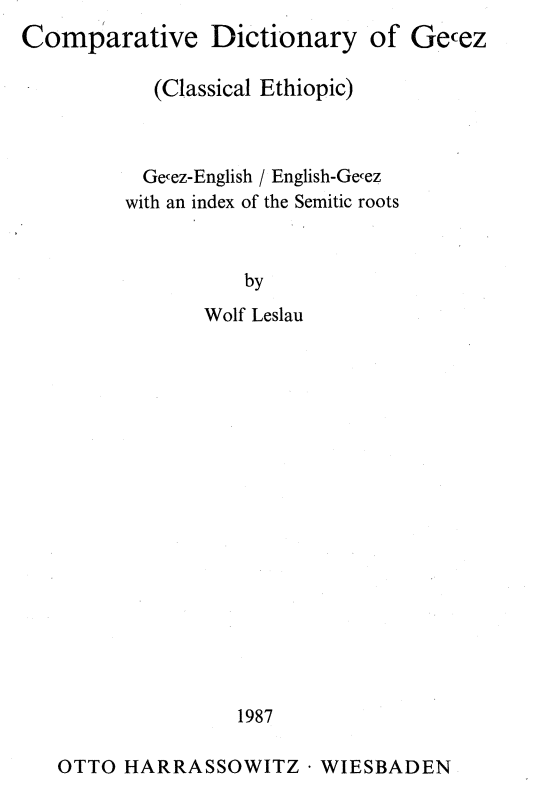quran.ksu.edu.sa/tafseer/tabary…

Let's look at Leslau Wolf's Comparative Dictionary of Ge'ez (1987), generously provided by @PhDniX .

"Siegmund Fraenkel ... in discussing the numerous Arabic words of Ethiopic origin dealing with ships and shipping, showed that these were a partial fruit of the long period during which the Arabs and Abyssinians [Ethipians] were associated ...
bible.ca/islam/library/…








































